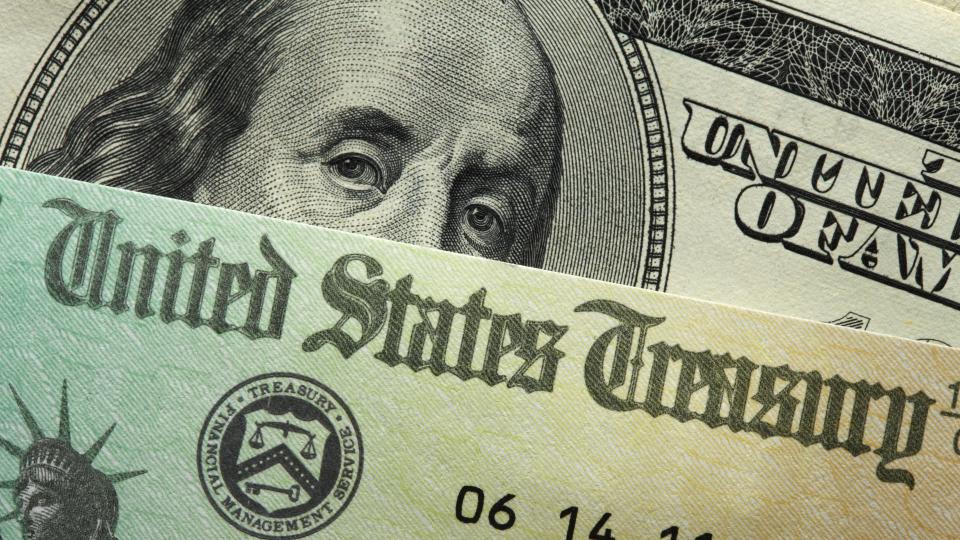There are numerous ways to earn passive income, but unfortunately, most of them are taxable. This is particularly true of income-generating investments, of which only a handful allow you to avoid paying tax.
Learn More: This Is the One Type of Debt That ‘Terrifies’ Dave Ramsey
Find Out: What To Do If You Owe Back Taxes to the IRS
However, there are some credits, settlements and payouts that you can receive tax-free, although these are typically paid either annually or a single time. Here’s a look at some of the types of passive income that aren’t taxable.
Sponsored: Owe the IRS $10K or more? Schedule a FREE consultation to see if you qualify for tax relief.
Tax-Free Municipal Bonds
The easiest — and indeed, one of the only — ways to generate tax-free income from your investments is to buy municipal bonds. Generally, municipal bonds are tax-free at the federal level. Residents of the same state as the issuer typically enjoy a state-level tax break as well. However, capital gains, if applicable, are fully taxable.
Inheritance
You won’t have to worry about paying federal tax on any inheritances you receive, no matter how large they may be. In some cases, the decedent may have to pay estate taxes, but that’s not a concern for beneficiaries. However, six states do impose inheritance tax on recipients, so you’ll have to verify whether all of your proceeds are completely tax-free.
See Why: You Can Get These 3 Debts Canceled Forever
Life Insurance Proceeds
If you are the named beneficiary of a life insurance policy, your proceeds will be paid to you free from income tax.This is true even if you receive a very large policy, such as $1 million or more. Note that if you cash in a life insurance policy, rather than receiving the proceeds of a death benefit, you’ll likely have to pay tax on some or all of it.
Disability Payments
In some cases, disability payments can be considered taxable income. However, if you pay for all premiums of a health or accident insurance plan, any disability payments you receive are not considered taxable income.
Gifts
Gifts can sometimes be taxable to the giver if they exceed the annual gift tax exclusion level, which is $18,000 per person for 2024. However, recipients of gifts never have to pay tax on what they receive.
Alimony
Alimony was formerly deductible by the payer and taxable to the payee, but that all changed in 2019. After Jan. 1 of that year, payers could no longer deduct their alimony payments, and recipients no longer had to pay tax on them. Bear in mind, however, that some states — such as California — do not observe this federal change and still tax alimony.
Child Support
According to the IRS, just as with alimony payments, child support payments are neither deductible to the payer nor taxable to the recipient.
Roth IRA Withdrawals
Roth IRAs are unlike traditional IRAs in that distributions from them are typically tax-free. As long as your withdrawals are “qualifying” — which generally means you’ve held the account for at least five years and are older than 59.5 — you won’t have to pay tax on any money you take out, even if it comes from interest or capital gains.
Disaster Mitigation Payments
If you suffer through a disaster, your state or local government may provide you with a disaster mitigation payment. These payments are not considered taxable income.
Qualifying Adoption Reimbursem*nts
In addition to receiving a tax credit for qualified adoption expenses, you’re also able to exclude from income employer-provided adoption assistance payments.
Qualified HSA Funding Distribution
You’re allowed to take a one-time distribution from your IRA to an HSA account without having to pay tax on that transfer.
Income in a State With No Income Tax
Eight states currently do not tax income that is normally taxable at the federal level — Alaska, South Dakota, Nevada, Florida, Texas, Wyoming, Washington and Tennessee. This is one of the few examples when regular taxable income is nontaxable. However, you still will have to pay federal taxes on your income, even if you live in a state with no income tax.
How To Lower Taxes on Passive Income
Even if you’re receiving taxable income, there are steps you can take to reduce your tax bill. Some of the best options include the following:
Use Tax-Deferred Accounts
By keeping assets in tax-deferred accounts like IRAs and 401(k) plans, you won’t have to pay tax on your income and gains until you withdraw the money from the account. In the case of a Roth IRA, you may never have to pay tax on your distributions at all. For traditional IRAs, 401(k) plans and other qualified retirement accounts, you also might be able to claim a tax deduction on your contributions.
Hold for the Long Run
Holding investments for the long run not only helps you avoid multiple taxable transactions, it also allows you to take advantage of lower long-term capital gains tax rates.
Harvest Tax Losses
If you have unrealized losses in your portfolio, you can harvest those losses and use them to offset any taxable gains you may have taken during the year. If your losses exceed your gains, you can use up to $3,000 per year to reduce your ordinary income as well.
More From GOBankingRates
7 Household Products To Always Buy in Bulk at Costco
Average Cost of Groceries Per Month: How Much Should You Be Spending?
7 Things to Do With Your Savings in 2024 to Grow Your Wealth
4 Reasons You Should Be Getting Your Paycheck Early, According to An Expert
This article originally appeared on GOBankingRates.com: 12 Types of Passive Income That Aren’t Taxable
